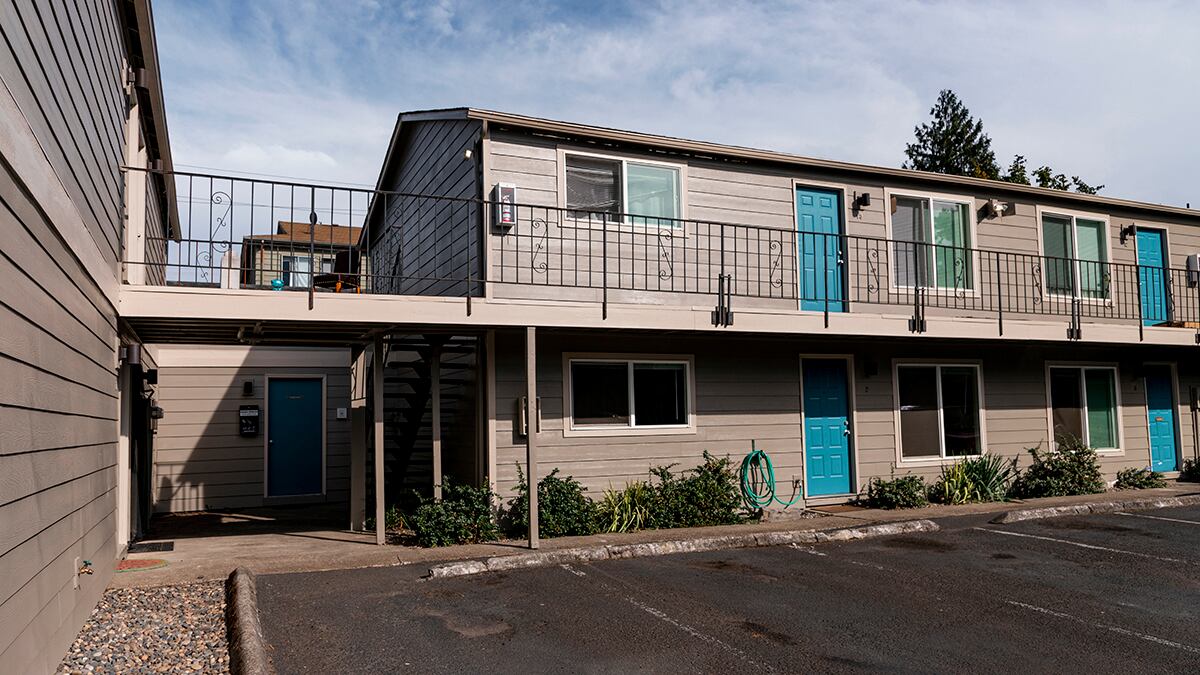A leading Oregon tenant group is warning that current prohibitions on evicting tenants are ending and could lead to a massive crisis if Oregon elected officials fail to extend protections for renters.
Roughly 80% of the 35,000 households across the state who have completed an application for pandemic rent assistance have yet to be approved. Yet their protection from evictions ends 60 to 90 days after they submit documentation of an application for state assistance. For many, the deadline could arrive this month.
“Right now, the Oregon rental assistance program is failing,” said Kim McCarty, executive director of the Community Alliance of Tenants, speaking outside the Oregon State Capitol as the Legislature prepared to meet for a special session on redistricting. “We need to take bold action.”
Portland State University estimated in June that the problem may be much larger. Its study suggests 125,000 Oregonians were at risk of eviction, which could cost government $4.7 billion in emergency shelters, medical bills, child welfare and juvenile justice services, according to the estimate. That’s the figure McCarty cited this morning as she tried to make a case for urgent action now.
The tenant group is demanding Gov. Kate Brown call a special session to extend the eviction moratorium until all the rent relief has been distributed. The group also called on Oregon to simplify applications for rent relief following a process approved by the federal government.
When contacted by WW, Brown’s office said she would consult with legislative leaders on the call for a special session.
“The governor knows...that thousands of households remain at risk of eviction and need assistance as immediately as is possible,” says spokesman Charles Boyle. “That is why [Oregon Housing and Community Services] and its partners continue to rapidly expand staffing, use every flexibility that our federal funders will allow to speed application approvals, and focus on households most immediately at risk of eviction.”
After the eviction moratorium lifted at the end of June, the Oregon Legislature gave tenants 60 days of protection from eviction if they had a letter certifying their application for rent assistance. In Multnomah County, that was extended to 90 days. That was in part so the state could get the rental assistance out to community groups, but much of it has yet to be paid out.
The amount of money that should be available to Oregon tenants is staggering: more than $800 million in COVID-related rent assistance. But it’s not clear if that’s enough to meet the need, even as the program has rolled out slowly.
The governor’s office says landlords have reason to await payouts: They don’t get funds if they evict tenants before they get their relief money.
“We know, too, that Oregon’s landlords, some of whom are facing economic hardships themselves, are much more likely to be made whole if they hold off on evicting tenants who are still in the application process,” Boyle says. “Rental assistance applications are halted if landlords evict––meaning landlords will not get the funds they would otherwise receive.”
McCarty, CAT’s executive director, took issue with that.
“The response from the governor’s office does not demonstrate an understanding of how complex the application process has been,” McCarty said. “We urge Gov. Brown to walk through it for herself and see the difficulties tenants are having in even getting their Safe Harbor letter.
“As for the assertion that landlords won’t evict, we have spent the past 18 months talking to tenants who have had landlords refuse repairs, harass tenants regularly, and leave tenants without even clean water for being behind on rent,” McCarty adds. “While some low-income landlords may wait until rental assistance is processed, evictions have significantly increased and many tenants do not have time to hope for the goodwill of landlords....We can’t pull the rug from underneath our most vulnerable communities because of arbitrary deadlines.”

